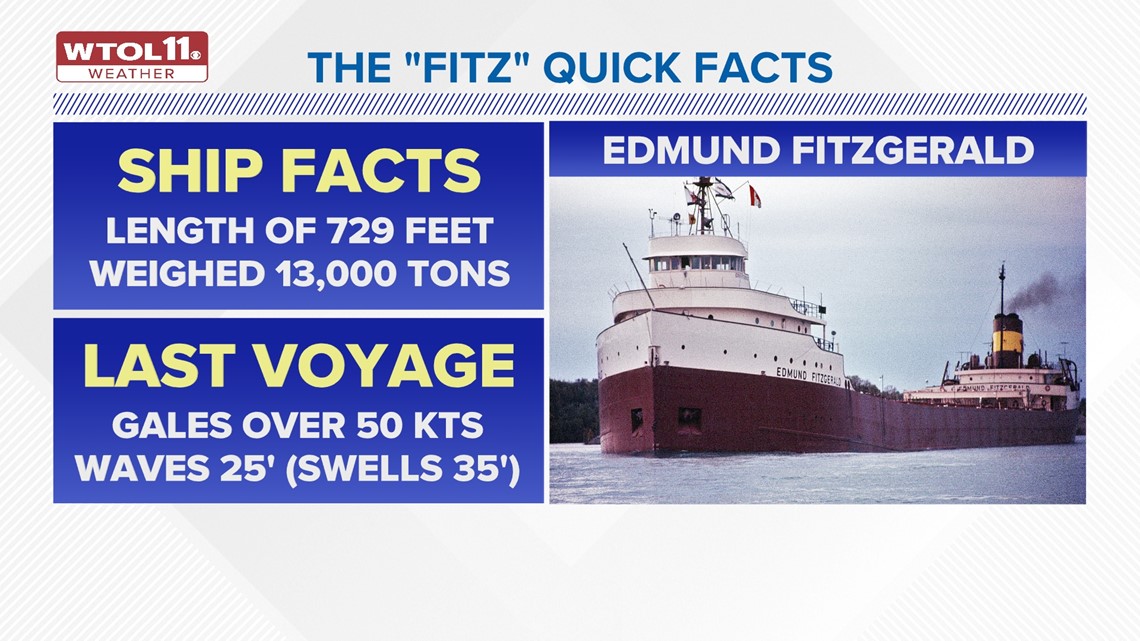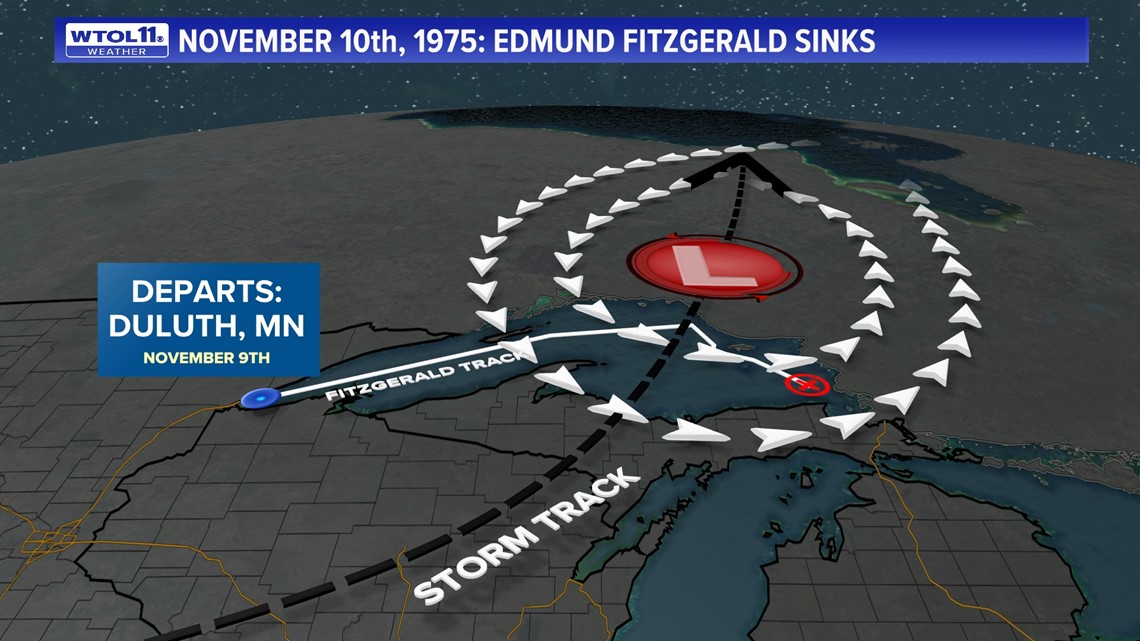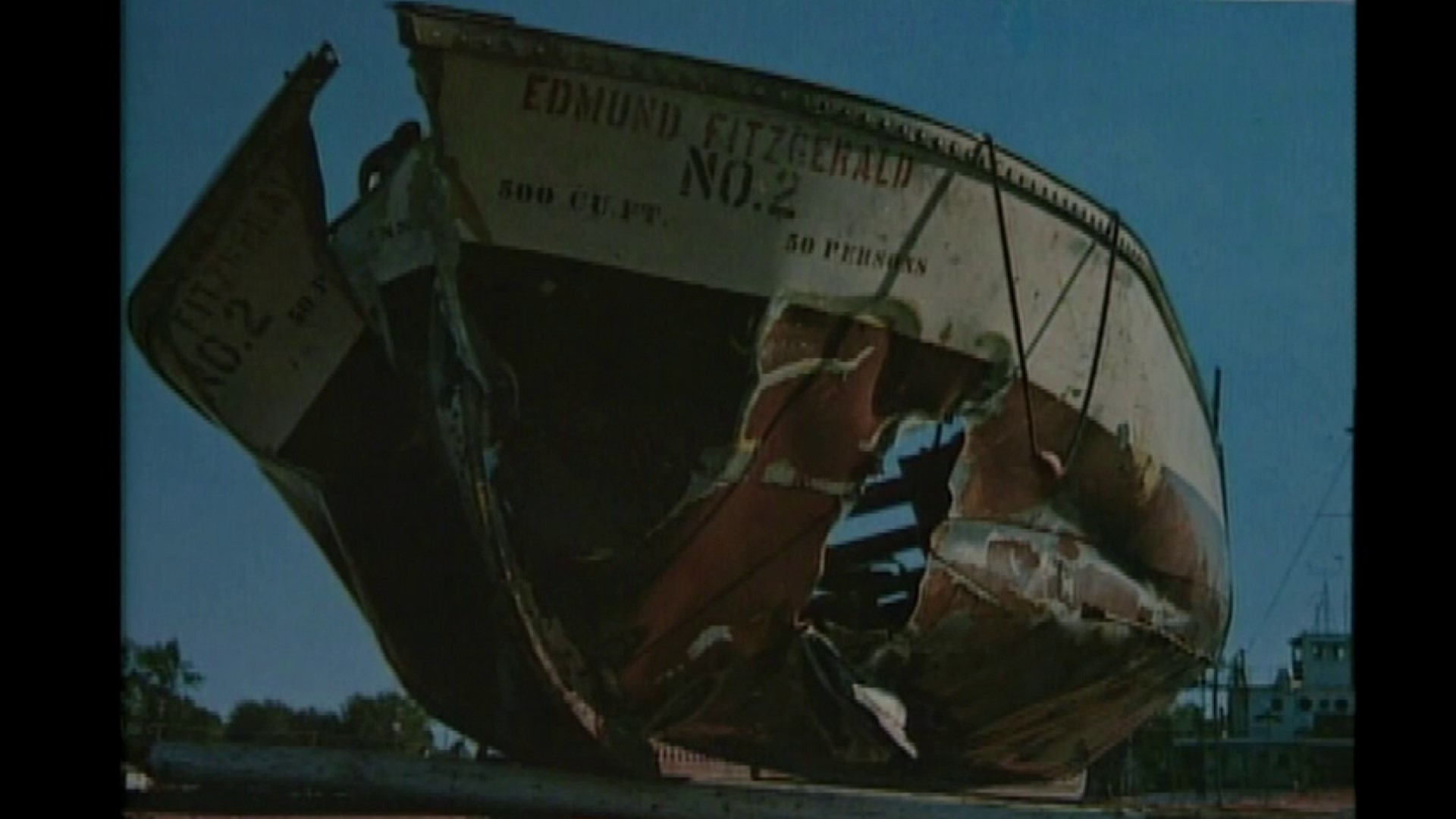TOLEDO, Ohio — Editor's note: The above WTOL 11 special report first aired Nov. 26, 1995.
On Nov. 10, 1975, the gales of November came early to Lake Superior and took with them the SS Edmund Fitzgerald and the lives of 29 crew. Nearly half a century later, people and communities in the Great Lakes region and beyond remember their loss.
With a length of over 729 feet, the Edmund Fitzgerald was the largest ship on the Great Lakes when it was built in 1958, and remains the largest ship to have sunk in the Great Lakes. While commonly associated with its final resting place in Lake Superior after an early November storm, the Fitzgerald has several ties to northwest Ohio and Toledo.


As a freighter, the Fitzgerald transported iron ore from Duluth, Minnesota to Detroit and Toledo, making approximately 47 of these five-day-long trips per season. The ship was vital to Great Lakes maritime commerce, setting haul records, causing it to become known as "The Pride of the American Side," a name referenced in Gordon Lightfoot's famous 1976 ballad, "The Wreck of the Edmund Fitzgerald." The freighter was also known by several other names, including "Toledo Express."
Name and destination aren't the Fitzgerald's only Toledo connection. From 1972 until it sank, Captain Ernest M. McSorley led the Fitzgerald's voyages. The well-respected captain was born in Ontario, Canada, but lived later in life with his wife in Ottawa Hills. His last known words were "We are holding our own," which were picked up by another freighter, the Arthur M. Anderson, which is still in-use today. On Nov. 10, 2023, the Anderson was in Lake Michigan.


Captain McSorley lost his life alongside 28 other men when the Fitzgerald sank, including William Spengler, a watchman from Toledo.
To honors those lost and commemorate the important historical moment, the National Museum of the Great Lakes in Toledo is holding special guided tours of the Col. James M. Schoonmaker Museum Ship, a retired lake freighter with similarities to the Fitzgerald. The tour will discuss the history and events of Nov. 10, 1975, theories of the vessel's sinking and stories about the crew.
The 75-minute tours are on Nov. 11 and Nov. 12. Tickets are $25 for non-members and $20 for members. To register for a tour, click here.
Although the Nov. 10 storm was certainly the catalyst for the incident, the actual cause remains uncertain. Theories range from a rouge wave, shoaling, flooded cargo holds and others. Regardless of the specific cause, historical weather data sheds some light on the circumstances surrounding the Fitzgerald's sinking.


On the morning of Nov. 10, the National Weather Service issued a Storm Warning for Lake Superior as the now deepening low was moving northeastward reaching a position near Marquette, Michigan. This low pressure system was driven by strong contrasts in temperatures often found in the stormy month of November.
These storm systems frequently produced heavy windstorms over the Great Lakes often referred to as “The Gales of November.” By early afternoon, the low pressure system had crossed Lake Superior and moved northeast toward the James bay. The pressure deepened to 978mb, indicating this was a fierce and strengthening storm. West to northwest winds increased over Lake Superior. Reports of wind over 50 kts with gusts over 70 kts created waves up to 25 feet on Lake Superior.
Though the Fitzgerald sits in two pieces at the bottom of Lake Superior, communities in the Great Lakes region still remember the loss that affected so many lives. Whether through music, museums, education or the continued importance of Great Lakes shipping commerce, Toledoans are still impacted by the legacy of the Edmund Fitzgerald.
MORE FROM WTOL 11

